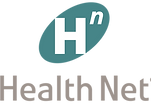Safeguarding Your Privacy and Personal Journey in Rehab
Privacy is one of the most pressing concerns many people have when it comes to addiction treatment. The fear of their addiction struggles becoming public knowledge or getting out to their employer can deter individuals from seeking the treatment they truly need.
At Pinnacle Health, we understand that your addiction and your treatment are deeply personal, which is why we are committed to respecting your privacy and confidentiality. At the heart of ensuring your privacy and confidentiality during addiction treatment are two essential federal laws: the Health Insurance Portability and Accountability Act (HIPAA) and the Code of Federal Regulations (CFR) Title 42 Part 2.
Your Rights Under the Health Insurance Portability and Accountability Act (HIPAA)
HIPAA is a federal law that was established in 1996 to help safeguard sensitive patient health information. In short, HIPAA sets the standard that your health data cannot be shared without your explicit knowledge and informed consent.
HIPAA’s general protections cover your rights to privacy when it comes to insurance companies and employers. It has also been expanded to include the Privacy Rule and the Security Rule, which together outline how medical providers and health insurance companies can use the Protected Health Information (PHI) found in your medical records.
Your PHI includes various details about you, such as your health status, treatment history, payment information, and more. This information cannot be disclosed to other entities without your consent, thereby protecting sensitive information about your time spent in rehab.
The Privacy Rule outlines precise rules regarding who can access or receive your PHI. It applies to all forms of health data, including written, oral, and electronic. The Security Rule, on the other hand, offers protection for digitally-stored health data found in electronic format.
While there are exceptions under HIPAA, these exceptions are outlined in the Privacy Rule, and are reserved for scenarios such as care coordination, payment for health services, or mandatory reporting.

The Code of Federal Regulations (CFR) Title 42 Part 2, also known as CFR 42 Part 2, adds an extra layer of protection for your privacy during rehab. This specific regulation shields information specifically related to substance use disorders (SUDs) or addictions because specialists have recognized that unauthorized disclosure could deter individuals from seeking critical and life-saving treatment.
Not only does CFR 42 Part 2 recognize that the lack of privacy can stop people from getting help, but it also acknowledges the fact that addiction, when left untreated, can lead to severe health consequences and societal burdens. As a result, this regulation aims to remove barriers to treatment by further protecting the privacy and confidentiality of people seeking addiction treatment.
Under CFR 42 Part 2, drug and alcohol rehab centers are forbidden from disclosing any information that could identify an individual as a patient within the facility. The exceptions to this rule are when formal written consent is obtained, court orders mandate the disclosure, or when information is shared with medical personnel for emergencies, program evaluation, or audit purposes. In other words, a staff member cannot disclose to individuals that you are receiving treatment at the rehab facility.
When you begin your journey at one of our addiction treatment centers, an intake coordinator will inform you of your rights under HIPAA and ask you to read and sign paperwork acknowledging your privacy rights.
Consent and disclosure forms may also be provided, allowing you to authorize specific individuals, such as close family members or friends, to access certain aspects of your health information while you’re in rehab. Many clients sign such consent forms, enabling therapists to share some information about their rehab progress with loved ones, and keeping them informed and involved in their recovery journey, but it is not mandatory that you share any of your information with loved ones outside of the facility. If you choose not to consent to the disclosure of your treatment information, your family and friends will not have access to any of your details, nor will they be informed of your presence at the facility.
Regardless of your choice, your privacy choices remain fully respected when you seek treatment with Pinnacle Health.
At Pinnacle Health, we aim to create a private and nurturing environment that promotes recovery. We understand that clients may wish to keep their treatment experience private, which is why we are unwaveringly committed to safeguarding your privacy and confidentiality during your time with us. Our detox and addiction treatment program fully complies with HIPAA regulations, and we strictly adhere to the protective measures outlined in CFR 42 Part 2.
If you’d like to learn more about our drug and alcohol rehab centers, we encourage you to speak with one of our dedicated admissions coordinators today. Rest assured that all calls are completely risk-free and treated with the utmost confidentiality. Take the first step towards your recovery journey and call us now to get started.
Find Addiction Help 24 Hours a Day
If you or a loved one are ready to take the first step of recovery, please contact Pinnacle Health to discuss your treatment options.
Call (888) 840-3534We Work With With Most Major Insurance Plans
Our admissions counselors are available 24 hours a day to verify your insurance coverage and help you begin your recovery journey.




